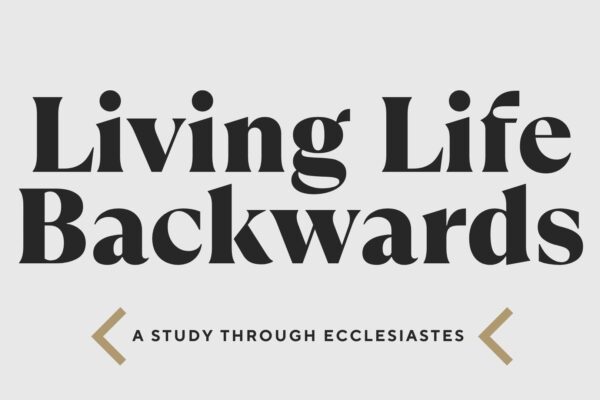The Price of Wealth: What Would You Do for $10 Million?
A study conducted on the American public asked a provocative question: “What would you do for $10 million?” The results were startling:
- 25% would abandon their entire family.
- 16% would give up their American citizenship.
- 16% would leave their spouses.
- 10% would withhold testimony and let a murderer go free.
- 7% would kill a stranger.
- 3% would put their children up for adoption.
These figures reveal the profound power money holds over people. It’s astonishing to see what individuals are willing to sacrifice for wealth.
Solomon’s Wealth and Wisdom
Our ongoing series, Living Life Backwards, challenges us to consider the kind of life we want to live by starting with the end in mind. King Solomon, one of the wealthiest individuals in history, offers valuable insights on the subject.
Solomon’s wealth was extraordinary:
- Base salary in gold: $20 million per year (666 talents of gold).
- Throne: Pure carved ivory overlaid with gold.
- Tableware: Gold plates and utensils.
- Palace guards: Shields overlaid with gold.
- Chariot: Finest cedar wood adorned with gold and silver.
Despite his immense wealth, Solomon concluded that all the wealth and possessions in the world are “meaningless” without the right perspective.
Money Matters: How Does Money Matter to You?
Billy Graham once said, “If a person gets their attitude on money straight, it will help straighten out almost every other area in their lives.” Solomon echoes this sentiment in Ecclesiastes 5:10:
“Whoever loves money never has enough; whoever loves wealth is never satisfied with their income. This too is meaningless.”
Solomon teaches that the problem isn’t money itself but the love of money—the insatiable desire for more. This craving can consume a person, leading to endless dissatisfaction.
Biblical Perspectives on Wealth
The Bible has much to say about money:
- Wealth itself isn’t evil: It’s the love of money that is dangerous. 1 Timothy 6:10 clarifies that “the love of money is a root of all kinds of evil.”
- God enables productivity: Deuteronomy 8 reminds us that God empowers us to gain wealth, and a good work ethic is praised throughout Scripture.
Hard work is rewarded, but the mistake comes when people make wealth their ultimate goal. The United States, with its culture of greed, is a prime example of how this pursuit can dominate lives.
The Burden of Wealth
Solomon warns that wealth brings its own set of problems:
- Increased consumption: As wealth increases, so do the number of people and responsibilities attached to it (Ecclesiastes 5:11).
- Loss of peace: The more you own, the more you have to manage, leading to increased stress and anxiety (Ecclesiastes 5:12).
- Hoarded wealth can harm: Wealth hoarded to the detriment of its owner or lost through misfortune brings grief (Ecclesiastes 5:13-14).
The pursuit of wealth can be toxic, leading to a false sense of security that can vanish like vapor.
You Can’t Take It with You
In Ecclesiastes 5:15-17, Solomon reminds us of the inevitable truth:
“Everyone comes naked from their mother’s womb, and as everyone comes, so they depart. They take nothing from their toil that they can carry in their hands.”
No matter how much wealth one accumulates, it cannot be taken beyond this life. The futility of trusting in money is starkly evident.
Enjoyment as a Gift from God
Solomon offers a healthier perspective on wealth in Ecclesiastes 5:18-20:
“It is appropriate for a person to eat, to drink and to find satisfaction in their toilsome labor under the sun during the few days of life God has given them—for this is their lot…when God gives someone wealth and possessions, and the ability to enjoy them…this is a gift of God.”
Enjoyment is a gift from God, and contentment is key. The “grass is greener” mentality only leads to dissatisfaction. Instead, we are called to enjoy the simple things in life and be content with what God has provided.
Contentment Over Covetousness
Hebrews 13:5 sums up Solomon’s teaching:
“Keep your lives free from the love of money and be content with what you have, because God has said, ‘Never will I leave you; never will I forsake you.’”
True contentment doesn’t come from what we possess but from knowing who possesses us. A relationship with Christ offers the security and satisfaction that money can never provide.
Final Thoughts: Which Kingdom Are You Interested In?
In the end, it all depends on which kingdom you are interested in. Money is a powerful tool, but it’s a poor master. Handle it carefully, and let it serve you rather than enslave you. Solomon’s wisdom calls us to live life backward, with the end in mind, ensuring that our lives are aligned with God’s kingdom rather than being consumed by the pursuit of wealth.


